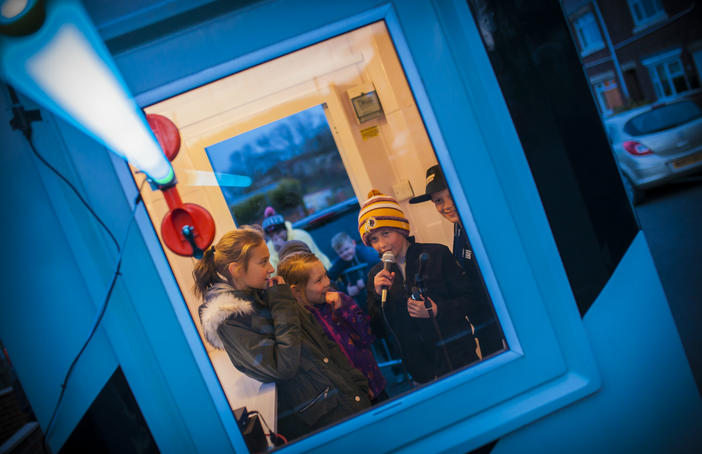Blog Post
David Jubb on Faster but Slower, Slower but Faster
"This is not arts for everyone. This is arts created with, by, for and about everyone. " David Jubb of Battersea Arts Centre responds to the learning emerging from Creative People and Places

David Jubb of Battersea Arts Centre responds to Faster but Slower, Slower but Faster, a summary of learning and insights from the Creative People and Places programme to date.
What an exciting set of ideas. The report is packed full of good suggestions, common sense and provides pointers for anyone interested in a participatory approach to creativity and culture. The report captures CPP’s values:
- a collective approach
- working with people and organisations who do not work in the cultural sector
- co-creating ideas and programmes
- an asset based approach (in other words building on what we have, not what we lack)
- championing the idea of taking time to get something right
Above all, the report highlights how CPP initiatives, around the country, are empowering people, enabling them to have agency to make change. This is not arts for everyone. This is arts created with, by, for and about everyone. It’s about people taking the lead In their own way. And every CPP initiative is, therefore, different.
By now, this must be a movement, yes?...a movement of people, artists and organisations who are passionate about using creativity to bring people together and break down the old hierarchies.
As well as CPP I can think of:
- Fun Palaces who are creating a model of participation and creativity driven by communities
- 64 Million Artists who are reminding us that everyone is creative
- Create Gloucestershire who are thinking about the role of culture in health & wellbeing
- Contact in Manchester who are empowering young people to have agency and to lead
- Derby Silk Mill who are co-creating work with the pubic in the museum sector
- Royal and Derngate who are creating an arts-led secondary school
- Turner Prize winning Assemble who are regenerating derelict houses in Liverpool
- Folkestone’s Quarterhouse who are using creativity to collectively look at the future of the town
- Heart n Soul who celebrating the exceptional creative talents of people with learning disabilities
- The Big House who are using creativity and culture to change the lives of care-leavers
I could go on. And on.
Many independent artists, companies, and many community groups, around the country, are working in this way. Many have been for years. The Gulbenkian Foundation is currently running a two-year inquiry in to the civic role of arts organisations that seeks to capture the work and values of this growing movement.
And yet mainstream arts and culture, mainstream funded cultural organisations, often struggle with this approach. At best, it is siloed inside education or participation teams, who often do exceptional work, but whose values, do not, sadly, run through everything the organisation does.
I hope that CPP, as an Arts Council funded project, is part of a tipping point that pushes this approach from the periphery to the centre. And that the Arts Council begins to bring together and champion the whole movement.
On a more specific and critical note, the report is not always easy to read. Could there be some stories up front to simply describe how CPP is being delivered in different parts of the country in different ways? I happened to speak to someone running one of the CPP initiatives, after I read the report, and the conversation helped bring the whole thing to life. One other concern I have is any study which recommends (in every single one of its recommendations) more studies, even if practical in nature. If we have reached a tipping point, then surely we don’t need to keep undertaking more studies, we just need to get on with it.
This is one of a series of guest blogs. You can read other blog responses to Faster but Slower, Slower but Faster on the links below:
- Nazli Tabatabai-Khatambakhsh from Zendeh
- Saffi Price from Wolverhampton Voluntary Sector Council
- Robin Dixon, a local resident and Cultural Connector for Creative Barking and Dagenham
- Dr Abigail Gilmore from the University of Manchester







